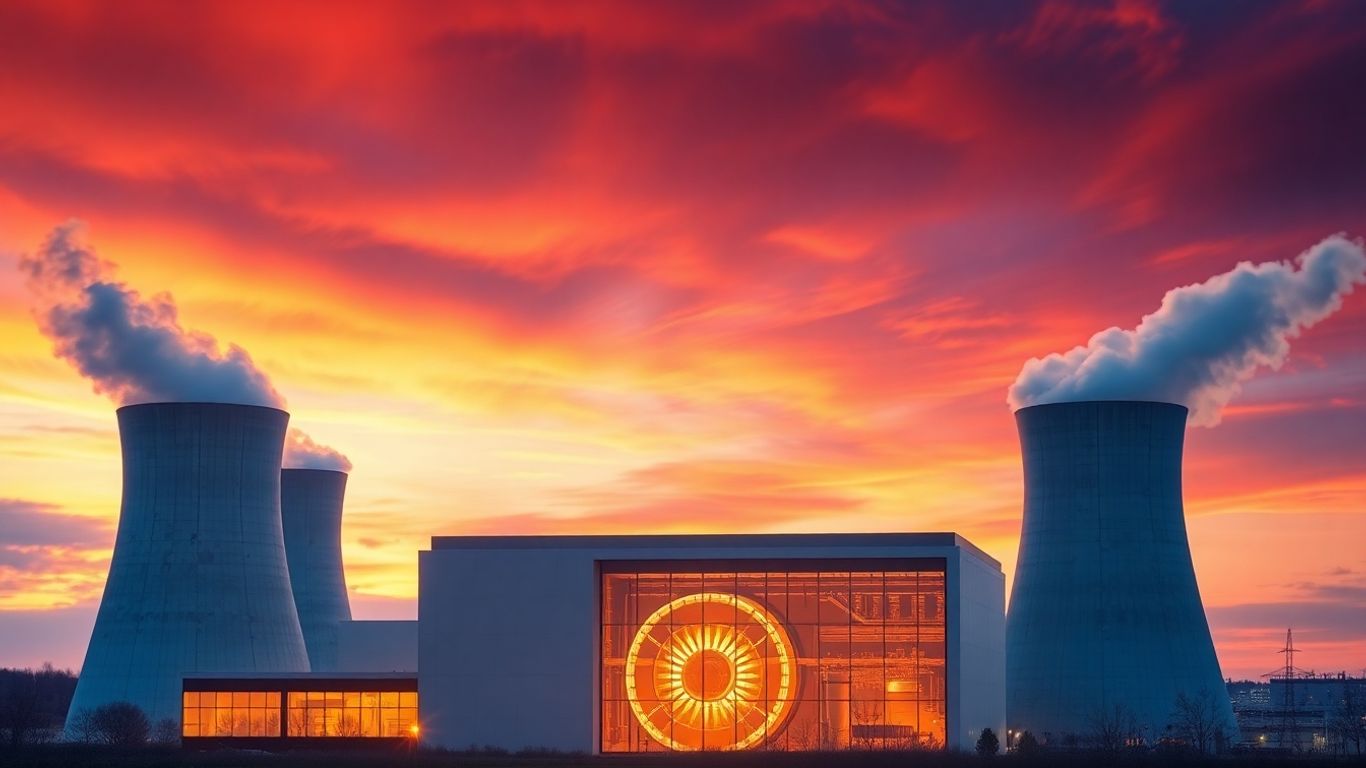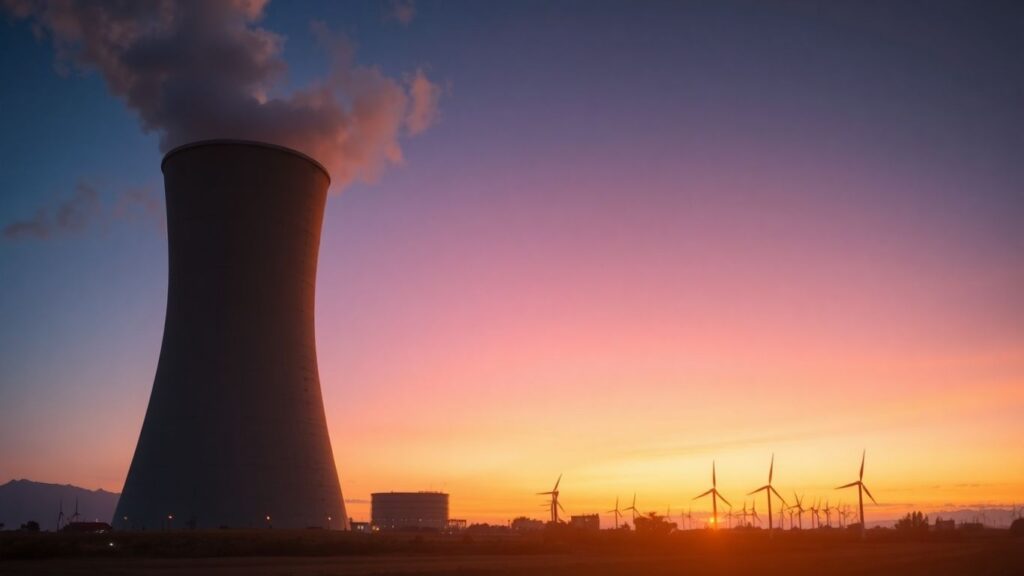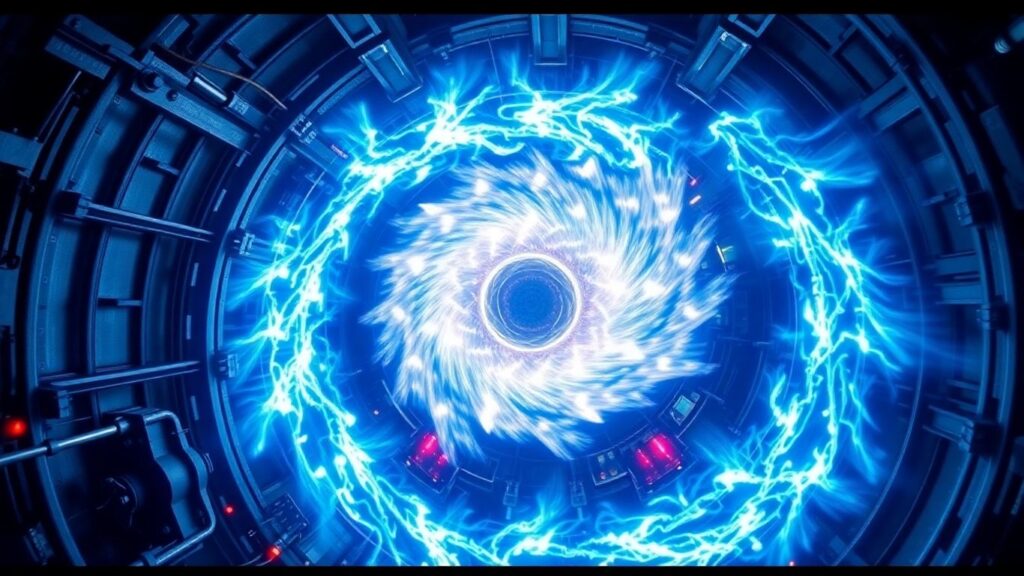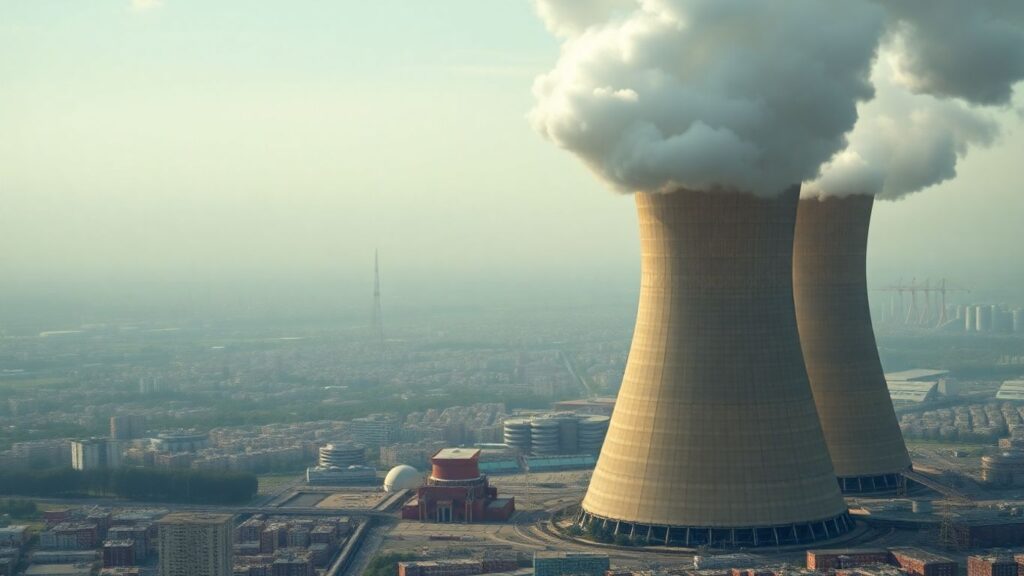Public and industry interest in nuclear energy is experiencing a significant upswing, driven by climate change concerns, technological advancements, and the growing energy demands of sectors like artificial intelligence. This renewed focus marks a potential "renaissance" for nuclear power, shifting the conversation from "if" to "how" it can contribute to a clean energy future.
Key Takeaways
- Public support for nuclear energy in the U.S. is near record highs, with a majority favoring its expansion.
- Technological innovations, particularly Small Modular Reactors (SMRs), promise faster deployment and lower costs.
- Major tech companies are investing in nuclear power to meet the immense energy needs of data centers.
- Policy reforms and bipartisan support are aiming to streamline the development and deployment of new nuclear technologies.
- Global energy needs and national security considerations are also contributing to the renewed interest in nuclear power.
Growing Public Approval
Recent polls indicate a strong and growing public endorsement of nuclear energy. Gallup polls show support for nuclear energy as an electricity source in the U.S. has reached 61%, just shy of a record high. Similarly, a Pew Research Center survey found that 56% of Americans favor expanding nuclear power. This increase in support is particularly notable among younger generations who are increasingly concerned about climate change. While support for renewable energy sources like solar and wind has seen some decline, nuclear power’s favorability has steadily climbed over the past few years.
Technological Advancements and Industry Investment
The landscape of nuclear energy is being reshaped by advancements in technology, with Small Modular Reactors (SMRs) and other next-generation designs at the forefront. These innovations offer potential benefits such as faster construction times, lower capital costs, and enhanced safety features, making nuclear power more economically viable and adaptable to various siting needs. This has attracted significant private capital and startup activity, with tech giants like Microsoft, Amazon, Google, and Meta investing in nuclear power to secure reliable, carbon-free energy for their data centers, which are crucial for AI development.
Policy and Geopolitical Drivers
Policy reforms, such as the ADVANCE Act, are being implemented to modernize regulatory processes and accelerate the deployment of new nuclear technologies. Bipartisan support in Congress underscores the recognition of nuclear energy’s role in achieving decarbonization goals and enhancing energy independence. Globally, nations are increasingly viewing nuclear power as a strategic asset for energy security and economic competitiveness, especially in light of geopolitical shifts and the need to meet rising global energy demands without increasing fossil fuel dependence.
Challenges and Future Outlook
Despite the positive momentum, challenges remain. The historical issues of cost overruns and lengthy construction timelines for traditional large-scale reactors are still a concern. However, the focus on SMRs and other advanced designs aims to mitigate these challenges. Experts emphasize that continued community engagement, regulatory modernization, and sustained investment are crucial to realizing the full potential of this nuclear energy resurgence. The coming years will be critical in determining whether this renewed interest translates into the widespread construction of new nuclear power facilities.
### Sources
- Why the nuclear energy renaissance is real — and necessary, Utility Dive.
- Interest in nuclear power is surging. Is it enough to build new reactors?, MIT Technology Review.
- Nuclear Energy Support Near Record High in U.S., Gallup.
- Majority of Americans support more nuclear power in the US, Pew Research Center.
- Americans’ Support for Nuclear Energy Highest in a Decade, Gallup.












